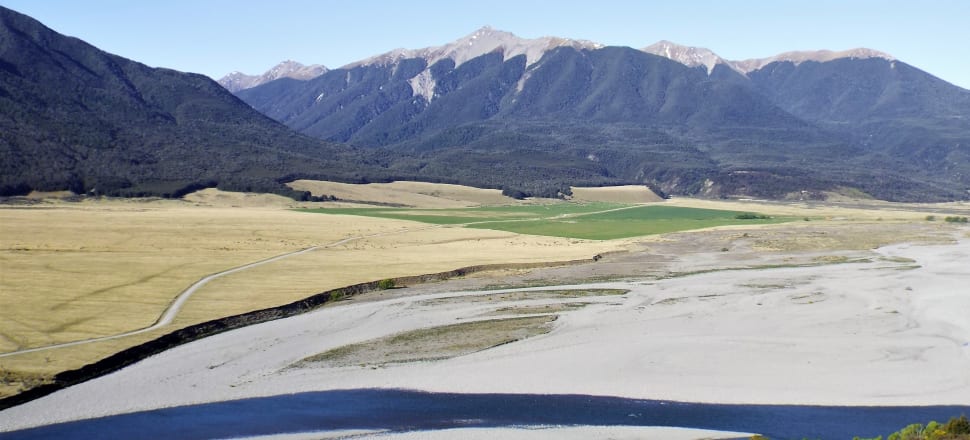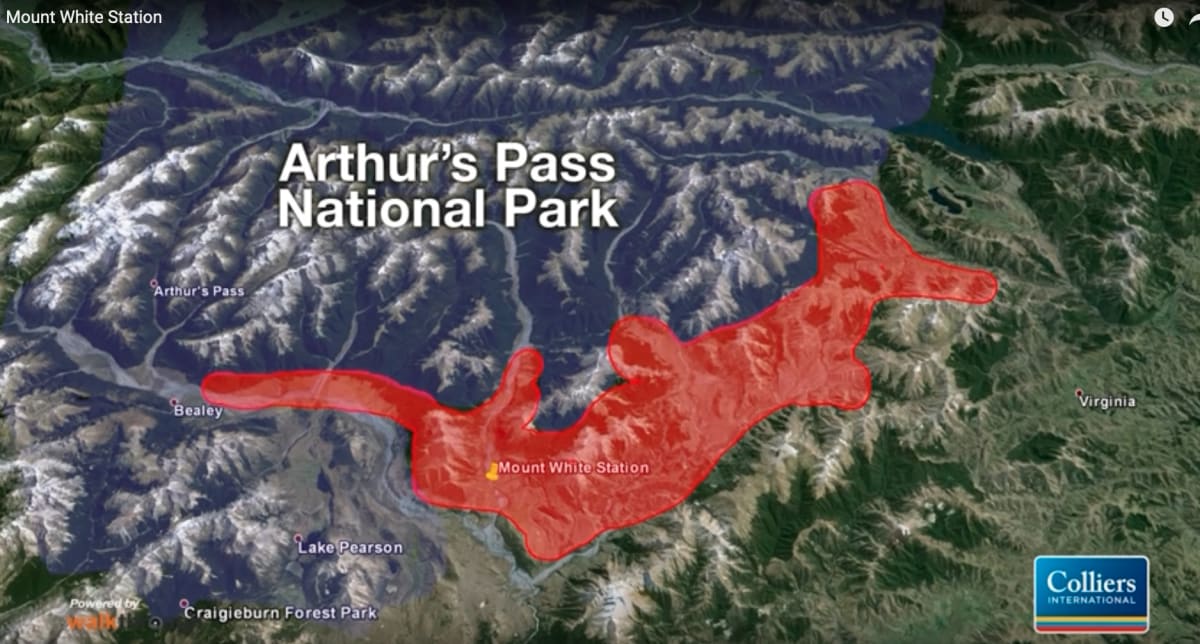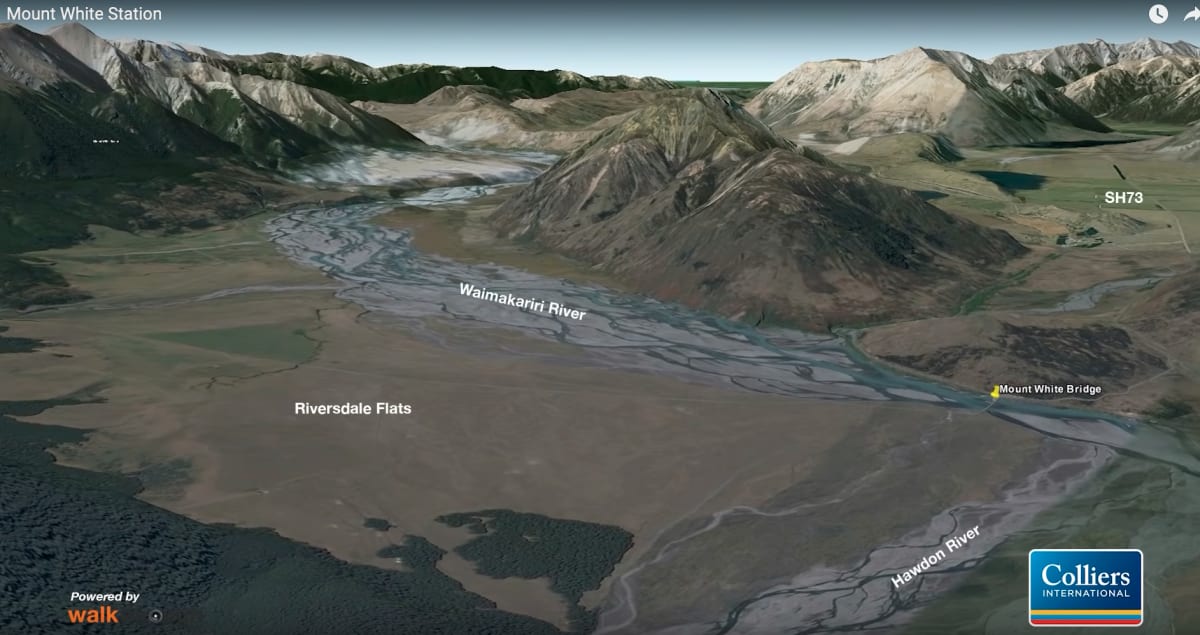
Czech multi-millionaire enters legal wrangle with Crown over a supposed reserve. David Williams reports
An attempted fix of a 122-year-old mistake is, itself, a mistake, the High Court has been told.
Lawyers for the Czech-born businessman who bought the Mt White Station pastoral lease for $28 million, argue the landlord, Commissioner of Crown Lands Craig Harris, shouldn’t be allowed to remove from the lease a reserve area known as Riversdale Flats.
READ MORE: * Fix for 120-year anomaly heads to court * Lawyers called in over 119-year mistake
The flats are bounded by the Waimakariri and Hawdon Rivers, and the mountainous boundary of the Arthur’s Pass National Park.
Lukas Travnicek’s company, Southern Ranges Ltd, is asking Justice Rob Osborne to overturn Harris’s decision at judicial review. The reserve status is disputed.
The hearing, held in Christchurch this week, has been a journey into the mists of time.
At its heart is a 1901 Gazette notice, which states the area – technically known as Part Reserve 3535 – is set aside for national park purposes. But there’s also been extensive discussion of 19th Century legislation, and the establishment of Yellowstone National Park in the United States in 1872.
“There may be a rather difficult situation here but that’s the operation of the law, in our submission." – Jeremy Prebble, Crown lawyer
Definitions of “park” from more than a century ago have been mulled.
Questions have been raised about the behaviour of the Crown. It allowed the transfer of the lease from the Turnbull family to Travnicek in 2018, only to withhold Riversdale from the renewal a few years later, stating to do otherwise would be unlawful.
Arguments were made in court that withdrawing the flats from the Mt White lease would make the farm station uneconomic. Those claims, countered by the Crown, have been set to one side by the Judge, because the crux of this case is legal one, not financial.
The central question is whether, as the Crown contends, the 1000 hectares of Riversdale Flats have reserve status.
To prove that, lawyer Stephen Rennie, for Southern Ranges, argued the Crown has to pass six tests – or its case will fall like a “house of cards”.

Before picking apart historical legislation, it’s worth traversing Mt White’s recent history – a history added to by information disclosed in the High Court hearing.
An international sales campaign was launched in 2015 for the 40,000-hectare Mt White Station.
In notes accompanying a marketing video, commercial property company Colliers said Mt White was “considered by many as the ultimate high country property with outstanding recreational values set in a majestic outdoor playground all within two hours of Christchurch”.
Based on a 2017 field survey by the Department of Conservation, Riversdale has significant landscape, ecological and other conservation values. It’s alluvial river terrace, which is an at-risk land form.
In July 2018, Land Information NZ revealed Travnicek had bought Mt White. The Commissioner of Crown Lands, a statutory manager who reports directly to the Minister, allowed the lease to be transferred to Southern Ranges.
The day after, Travnicek told Newsroom it was in his best interests to sort out the Riversdale Flats. “I’m more than happy to find a compromise and to solve it.”
Because Travnicek was a New Zealand resident, the Overseas Investment Office approved the sale under delegated authority. Land Information Minister Eugenie Sage – who, in 2017, as a Green Party MP, urged the National-led Government to withdraw Riversdale from the Mt White sale – didn’t have a say.
In May 2019, a Land Information NZ briefing to Sage revealed an intention to protect Riversdale Flats, with the status quo “not an option” as it was against the 1901 Gazette notice. Options to shake Riversdale loose of the lease included: acquiring the land; designating it “another type of national park”; or increasing environmental protections.
A legal challenge was posited as an option, or even negotiating a land-swap.
Crown agencies, Land Information NZ and the Department of Conservation, reached a “unified position” in 2020, and wrote to Southern Ranges to resolve the issue.
In July 2020, Harris, the Commissioner, advised Southern Ranges the Mt White lease over Part Reserve 3535 wouldn’t be renewed. The final decision was made in November 2021, a month before the lease expired.
Southern Ranges continues to occupy the Riversdale Flats – which are dotted with freehold parcels of land – under interim court orders.
Which leads us to this week’s hearing.
Six legal tests
The first hoop through which the Crown has to jump through, according to Southern Ranges’ lawyer Rennie, is whether Part Reserve 3535 is considered a reserve under the Public Reserves Act 1881.
The 1901 Gazette notice stated the land was reserved “from sale” for the purpose of a “national park”. It didn’t explicitly reference the Act or use the word public, Rennie said.
The Act refers to three classes of purpose – “parks and domains” is a purpose in Class III, but a “national park” is not. (New Zealand’s first national park was established in 1894.)
It was likely, Rennie posited, the Gazette notice simply reserved the land from sale, and it remained Crown land – not reserve.
Reservation of the Riversdale Flats under the Land Act 1892 is something that has vexed officials over the years. Was it reserved under subsection 5, dedicated to “gardens, parks, domains, or commons...” or subsection 9, which refers to “natural curiosities or scenery [of] national interest”?
Rennie argued the latter, noting natural curiosities and national interest were not listed as purposes in the Public Reserves Act.
(The reference to “natural curiosities” provoked a comparison to language used in the establishment of Yellowstone National Park, language mirrored in New Zealand’s Parliament but dismissed by the Crown as “historic relics”.)
Katie Anderson, of Crown Law, said, simply, “a national park is a park”, which clearly fell within the catch-all category of the Public Reserves Act’s Class II – titled “reserves for public works and general purposes”. Southern Ranges hadn’t proved the Riversdale reserve been held for a different purpose, Anderson said – “we submit this view hasn’t changed over time”.
Double life
Rennie’s next argument – the second test – was that the reserve status might have been extinguished by the granting of a pastoral lease for Mt White Station in 1956.
This harks back to the double life of “Part Reserve 3535”. Somehow, it was, for more than 60 years, a reserve set apart for a public purpose and, at the same time, included in a pastoral lease.
The lease is an “unqualified, indefeasible title” which, Rennie attested, meant it extinguished the reserve status.
In 1968, the legal description, or appellation, of the lease’s title was changed to include overt mention of Part Reserve 3535.
(The following year, the assistant commissioner wrote to the original lessee, Richard Turnbull, saying “your security of tenure is not being challenged; it is not intended to alter the status quo”. Yesterday, Jeremy Prebble, the Crown’s barrister, called that an “interesting series of statements”.)
This alteration was characterised by Southern Ranges as an attempt to resurrect the reserve status, which is scotched by an indefeasible (incapable of being defeated) title.
Not so, Prebble said, as a lease is a lesser interest than a full title, therefore it can’t extinguish the reserve status which sits above it.
The Reserves Act regime overrides or limits leases, he said, giving a statutory exception to indefeasibility. Also, Reserves Act titles can be leased without overriding their status.
There is a prescribed process in legislation to revoke reservation – “none of which has been used in this case”.

The final four tests, of Southern Ranges’ six, centre on the Reserves Act 1977, and, perhaps crucially, its 1996 amendment.
Crown pastoral leases have 33-year terms, with a perpetual right of renewal. In court this week, the parties traded arguments about whether a lease renewal effectively created a new lease, or was an extension of the existing one.
Prebble, for the Crown, said there was a deliberate and fundamental change to leased land after 1996. After the Reserves Act amendment of that year, renewing the Mt White lease while leaving the reserve land intact “would be unlawful”.
The topic of leases was picked up in a 2014 High Court decision, the result of arbitration between skifield operator NZSki Ltd and the Director-General of Conservation over the lease of the Remarkables ski area, near Queenstown.
The Conservation Minister’s power to grant leases was “removed” in 1996, the court said.
“If NZSki’s rights to use the area are to continue beyond the expiry of the present lease, that can only be by way of a concession.”
A Court of Appeal case, Otehei Bay Holdings Ltd v Fullers Bay of Islands Ltd & Others, upheld a High Court decision which ruled the 1996 amendment act gave reserves status primacy over a lease.
This week, Southern Ranges contended the amendment couldn’t override the Crown Pastoral Land Act, which was enacted two years later.
Anderson, of Crown Law, drew the distinction that that Act dealt with particular leases, while the Reserves Act dealt with land classes.
With the “broad and sweeping” reforms in 1996, there was no indication, Anderson said, that Parliament intended to make an exception for Crown pastoral leases.
Rennie, for Southern Ranges, told the Court removal of access to Riversdale Flats would prevent Mt White Station using its freehold areas nearby, and, more generally, it would render the farm “uneconomic”.
He said the objective of the Crown exercise was to remove Riversdale from the lease. Southern Ranges rated as “nought” the chance it would get a concession from the Director-General of Conservation to graze the land.
Prebble, barrister for the Commissioner of Crown Lands, acknowledged the situation was “messy”. Expectations had developed as a consequence of the failure to establish the land’s status, he said.
“There may be a rather difficult situation here but that’s the operation of the law, in our submission.”
The hearing concluded on Wednesday. Justice Osborne, who reserved his decision, intimated he may not have time to consider his judgment for some months.







